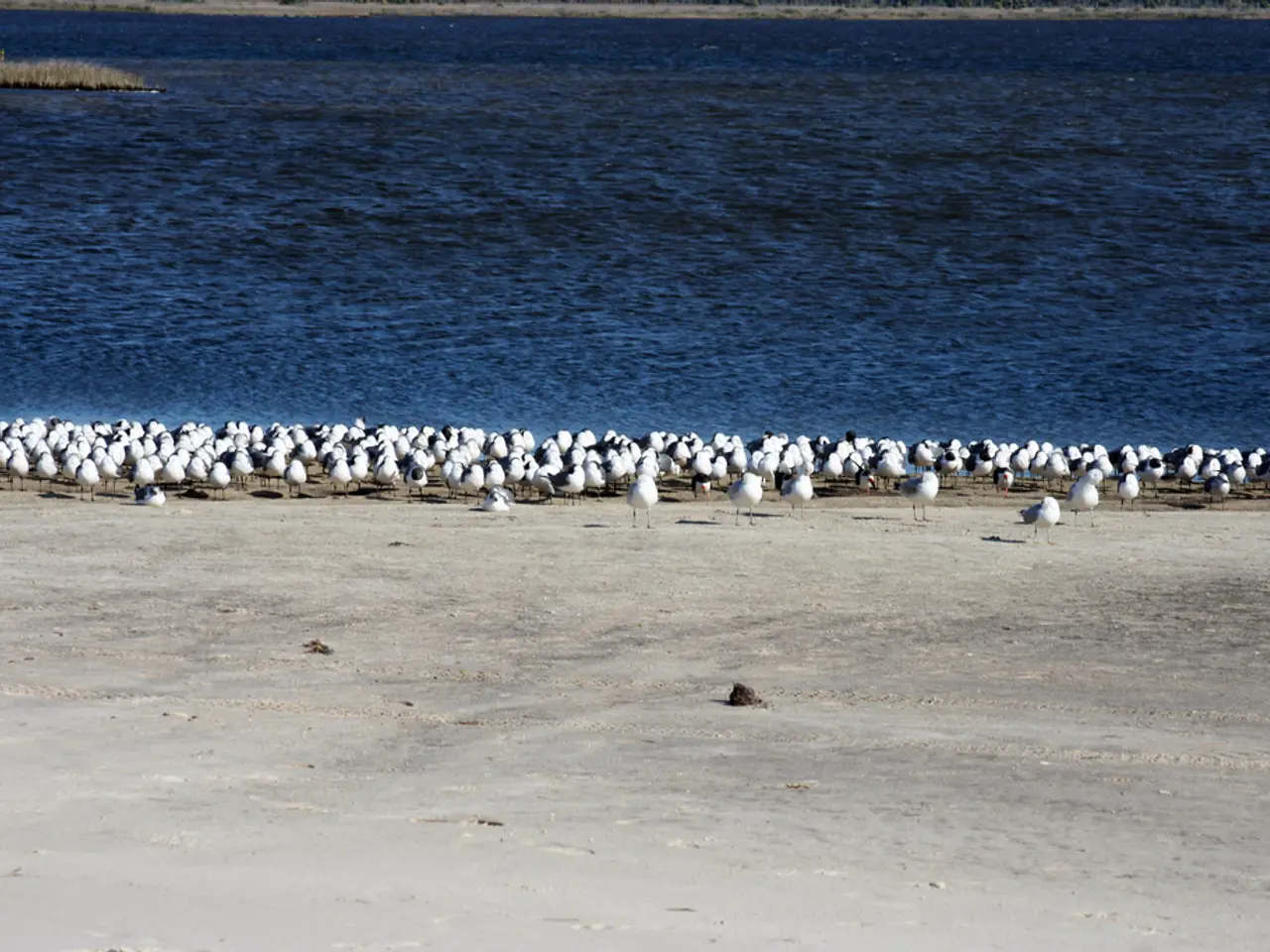Turkey reinforces its maritime claims by establishing new protective zones
Turkey's recent declarations of Marine Protected Areas (MPAs) in contested waters, such as the Northern Aegean and Fethiye–Kaş regions, involve a complex interplay of environmental stewardship and geopolitical contestation. This delicate balance is reflected in the specific responsibilities and challenges that Turkey faces.
Responsibilities for Turkey's MPAs include ensuring that they are established based on scientific evidence and transparency. The country must also adhere to international law principles, primarily the United Nations Convention on the Law of the Sea (UNCLOS), which limits a state’s right to designate MPAs to sovereign or sovereign-right zones (territorial seas, Exclusive Economic Zones, or continental shelves).
Respecting freedom of navigation rights for other states in non-territorial maritime zones while managing and protecting marine biodiversity is another responsibility. Balancing environmental goals with the maintenance of regional maritime governance and legal norms is crucial to avoid escalation of conflicts.
Challenges include legal disputes and accusations of violating Greek sovereign rights and international maritime law due to the MPAs extending beyond Turkey's internationally recognized territorial waters. Unilateral declarations in contested waters risk escalating tensions and undermining existing regional agreements and maritime boundary norms.
Enforcing conservation measures in contested areas without provoking interstate conflict or obstructing navigation rights is another challenge. Managing international perceptions and criticism, as these environmental designations are viewed by some as political provocations rather than purely conservation efforts, is also a significant challenge.
Despite these challenges, Turkey has pledged to expand the MPAs in all seas without disrupting economic sectors such as fisheries, shipping, and tourism. The government insists that environmental measures must serve their stated purpose and not be used as a back door for strategic gains.
Turkey's MPAs are rooted in scientific research and coordinated planning involving multiple government ministries. The new MPAs, located off Gökçeada in the Northern Aegean and in the Fethiye-Kaş region of the Mediterranean, are designed to preserve marine biodiversity without restricting the freedom of navigation of other states.
The updated National Maritime Spatial Planning (MSP) Map, which includes the new MPAs, was registered with UNESCO's Intergovernmental Oceanographic Commission (IOC) in June 2025. Turkey rejects any unilateral move to alter the status quo in disputed areas, whether under the name of environmental protection or not.
The issue of marine protected areas has gained urgency due to Greece's July 21 announcement of two new marine parks in the Ionian and Aegean seas. Turkey's Foreign Ministry has stated that Greece's move has "no legal effect" and will not impact Turkey's legitimate rights and interests.
In a statement, Başkara, Turkey's Minister of Environment and Urbanisation, argued that environmental protection should be a bridge for cooperation, not a tool for altering the balance of sovereignty. Environmental cooperation in the Aegean faces deep-rooted obstacles due to long-standing disputes between coastal states.
In conclusion, declaring MPAs in contested waters like Turkey's recent additions involves a complex interplay of environmental stewardship and geopolitical contestation, requiring careful legal and diplomatic navigation to uphold international norms while asserting national interests.
[1] "Turkey-Greece tensions escalate over Aegean Sea marine parks," BBC News, July 21, 2025. [2] "Turkey's new marine protected areas spark controversy," The Guardian, Aug. 2, 2025.
- Turkey's new marine protected areas in the Northern Aegean and Fethiye–Kaş regions are based on scientific research and coordinated planning among multiple government ministries, aimed at preserving marine biodiversity without obstructing freedom of navigation for other states.
- The environmental measures taken by Turkey are designed to serve their stated purpose and not be used as a back door for strategic gains, ensuring that economic sectors such as fisheries, shipping, and tourism are not disrupted.
- Despite Greece's announcement of two new marine parks in the Ionian and Aegean seas, Turkey rejects any unilateral move to alter the status quo in disputed areas, be it in the name of environmental protection or not.
- Environmental cooperation in the Aegean faces deep-rooted obstacles due to long-standing disputes between coastal states, yet the Minister of Environment and Urbanisation, Başkara, argues that environmental protection should be a bridge for cooperation, not a tool for altering the balance of sovereignty.
- The issue of marine protected areas has gained urgency, making it crucial to achieve a delicate balance between environmental stewardship, geopolitical contestation, adherence to international law, and the maintenance of regional maritime governance, as reflected in Turkey's pledged expansion of MPAs.




